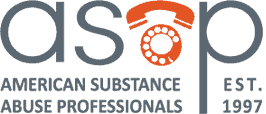By: National Safety Council
From opioids to alcohol, prescription medications to recreational drugs, impairment is a serious issue facing today’s workplace. In fact, 75% of adults with a substance use disorder are in the workforce. More than 72,000 people died of a drug overdose in 2017, and more than two thirds of those deaths involved opioids.
Drug poisonings, a category that includes opioid-related overdoses, account for more than half of off-the-job fatalities. Additionally, some of the most frequent occupational injuries involving days away from work – overexertion, bodily reaction, and slips, trips and falls – can result in an opioid prescription. People who take opioid pain relievers for too long or in doses too large are more at risk of developing an opioid use disorder and more likely to die of drug overdose.
What is the Cost of Opioid Use Disorder to a Workplace?
The opioid crisis impacts an employer’s bottom line, safety, and employee health and wellness. Employers face significant healthcare costs associated with opioid misuse, including opioid prescriptions and treatment for opioid use disorder and overdose. Additionally, people with opioid use disorders frequently have increased absenteeism and reduced productivity, which have a significant impact to the bottom line.
It doesn’t stop there. Impaired employees pose a hazard to themselves and those around them, particularly in safety-sensitive positions. Opioids can impair thinking and reaction time, which can lead to serious errors when performing tasks that require focus, attention to detail or the need to react quickly.
Employers play a very important role in helping employees in recovery. Employees who are in recovery have equal or lower healthcare costs, absenteeism and job turnover compared to employees who never report an SUD. Employers who help employees complete treatment are likely to see a high return on investment when working with employees throughout treatment to achieve recovery. Supporting employees in recovery creates clear reasons and culture for job satisfaction and loyalty in the workforce.
What Can Employers Do?
Having an integrated, proactive approach is essential to prevent opioid misuse and to support employees who have an opioid use disorder in seeking treatment and recovery. Blending health and safety programs to address organizational, personal and occupational activities enhances overall worker wellbeing, and prevents work related injuries and illnesses.
The National Safety Council offers a comprehensive toolkit for employers to begin addressing opioids in their organizations. From a variety of education tools to a step-by-step guide for getting started, the toolkit will help engage employees on the risks of opioid use, develop drug-related HR policies, recognize signs of impairment and support employees who are struggling with opioid misuse.
National Safety Council. (2020). Implications of substance use disorders for employers. Retrieved from https://www.nsc.org/work-safety/safety-topics/drugs-at-work/substances


